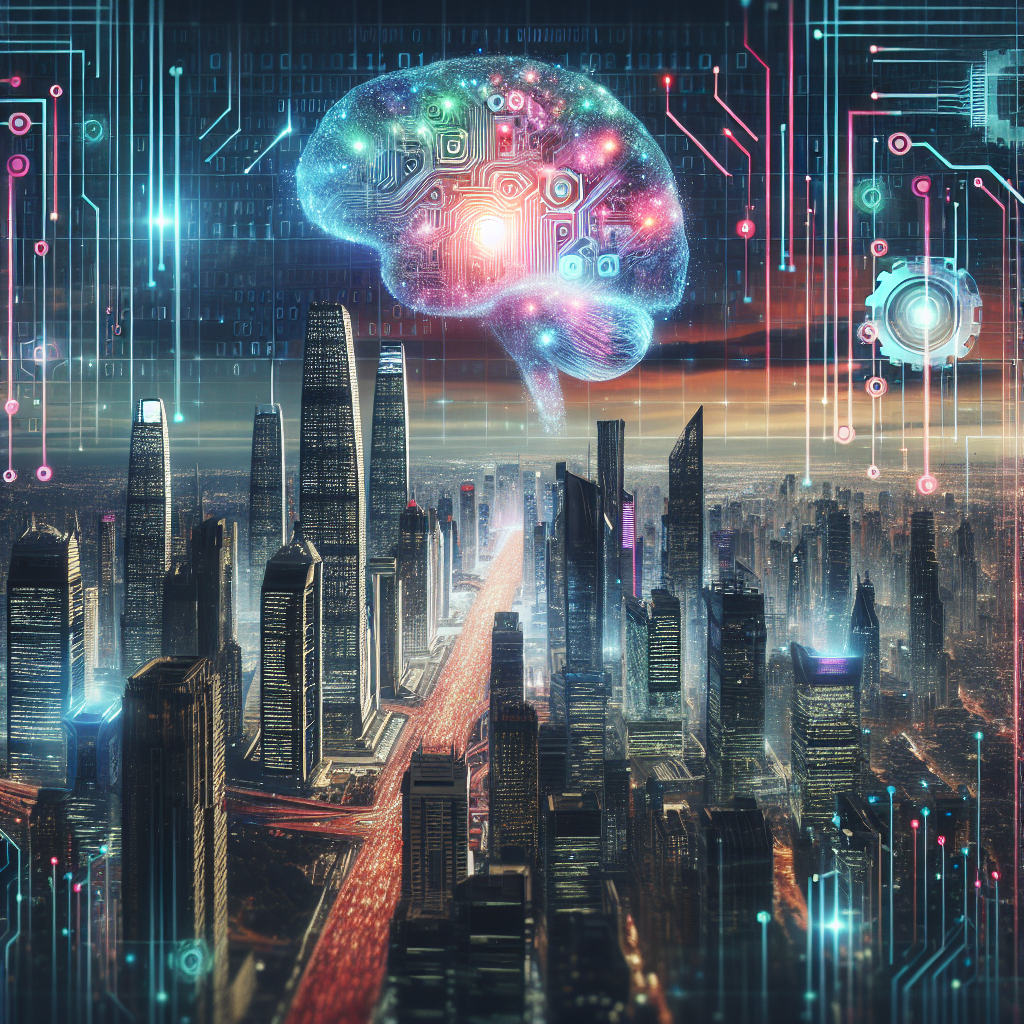Artificial Intelligence (AI) has been a transformative force across various sectors in recent years. From enhancing customer experiences to optimizing operational efficiency, AI technology continues to evolve rapidly. This article explores the latest breakthroughs in AI technology, detailing their implications for businesses and society at large.
Table of Contents
- Understanding AI Technology
- Recent Breakthroughs in AI
- Natural Language Processing (NLP)
- Machine Learning and Deep Learning
- Computer Vision
- AI in Robotics
- Applications of AI in Various Industries
- Healthcare
- Finance
- Marketing
- Manufacturing
- Challenges and Ethical Considerations
- The Future of AI
- Conclusion
Understanding AI Technology
Artificial Intelligence refers to the simulation of human intelligence processes by machines, particularly through computer systems. These processes include learning (the acquisition of information and rules for using it), reasoning (using rules to reach approximate or definite conclusions), and self-correction.
In practical applications, AI can be categorized into two main types: narrow AI (or weak AI), which is designed to perform a narrow task (like facial recognition), and general AI (or strong AI), which has the capability to understand, learn, and apply knowledge across a variety of tasks.
Recent Breakthroughs in AI
Natural Language Processing (NLP)
Natural Language Processing (NLP) has seen significant advancements in recent years, particularly with the introduction of transformer models like GPT-3 (Generative Pre-trained Transformer 3) and BERT (Bidirectional Encoder Representations from Transformers). These models have revolutionized the way computers understand and generate human language.
NLP applications include chatbots, sentiment analysis, and language translation. Companies like OpenAI and Google are at the forefront of these advancements, creating tools that not only understand syntax but also context, resulting in more human-like interactions.
Machine Learning and Deep Learning
Machine learning (ML) allows computers to learn from data without being explicitly programmed. Deep learning, a subset of ML, uses neural networks to model complex patterns in data. Recent breakthroughs include advancements in reinforcement learning and unsupervised learning, enabling AI systems to learn from less structured data more effectively.
Leading organizations like NVIDIA are utilizing these technologies for various applications ranging from gaming to autonomous vehicles, providing powerful tools for businesses to leverage data-driven decision-making.
Computer Vision
Computer vision involves enabling machines to interpret and make decisions based on visual data. This breakthrough has led to significant advancements in facial recognition, object detection, and video analytics. Companies like Amazon and Google leverage computer vision in their product lines, enhancing user experiences while ensuring security and functionality.
AI in Robotics
Robotics powered by AI technologies is transforming industries such as manufacturing, logistics, and healthcare. Innovations in AI have enabled robots to perform complex tasks such as surgery and warehouse management, significantly improving efficiency and precision. AI-driven robots are capable of learning and adapting to new tasks, reducing human error and enhancing productivity.
Applications of AI in Various Industries
Healthcare
AI technology is revolutionizing the healthcare industry. From diagnostic tools powered by natural language processing to predictive analytics that can forecast patient needs, AI is improving patient outcomes. Companies like IBM Watson are pioneering ways to integrate AI into clinical settings, enabling better decision-making and personalized medicine.
Finance
In the finance sector, AI tools are enhancing fraud detection, risk assessment, and customer service. Automated trading systems utilize AI algorithms to analyze market trends and execute trades faster than human traders. Firms are increasingly adopting AI for regulatory compliance and to enhance customer interactions through improved chatbots and financial advising systems.
Marketing
AI has enhanced marketing strategies through predictive analytics, customer segmentation, and targeted advertising. By analyzing consumer behavior, AI helps businesses tailor their marketing efforts, improving ROI and customer satisfaction. Tools that help automate online advertising campaigns can optimize target audiences in real-time, significantly boosting campaign effectiveness.
Manufacturing
In manufacturing, AI technologies are used for predictive maintenance, supply chain optimization, and quality control. AI-powered machines monitor equipment performance and alert managers to issues before they become critical, thus avoiding downtime. This approach not only saves costs but also enhances production efficiency.
Challenges and Ethical Considerations
As with any groundbreaking technology, the rapid advancements in AI raise important ethical considerations. Issues such as privacy concerns, bias in AI algorithms, and potential job displacement due to automation need to be addressed. Stakeholders must develop frameworks to guide ethical AI development, ensuring that technology serves the best interests of society.
The Future of AI
The future of AI appears promising, with potential developments in quantum computing, which could exponentially increase AI’s processing power. Moreover, as AI becomes more integrated into everyday life, industries are likely to adopt AI at unprecedented rates, further reshaping the economic landscape.
Technologies such as neuromorphic computing could revolutionize how AI systems operate, mimicking the human brain’s neural structure and improving efficiency in problem-solving tasks.
Conclusion
The advancements in AI technology are reshaping various facets of our lives, offering immense opportunities for entrepreneurs, marketers, and businesses alike. Staying updated on these breakthroughs is essential to leveraging their potential effectively while addressing the accompanying challenges.
As we move into the future, the importance of responsible AI development and implementation will only increase, shaping an environment where AI tools help drive innovation and improve quality of life.
For a more detailed look into how AI impacts marketing strategies, check out our article on AI in Marketing.
Moreover, for insights on the ethical implications of AI, you might find our discussion on AI Ethics beneficial.
This article provides a comprehensive overview of recent AI breakthroughs and their implications across various industries. For an engaging and informative exploration of AI technology, understanding these elements is crucial. The landscape of AI is ever-changing, and keeping abreast of these developments will empower business leaders and innovators to harness AI’s full potential responsibly.
